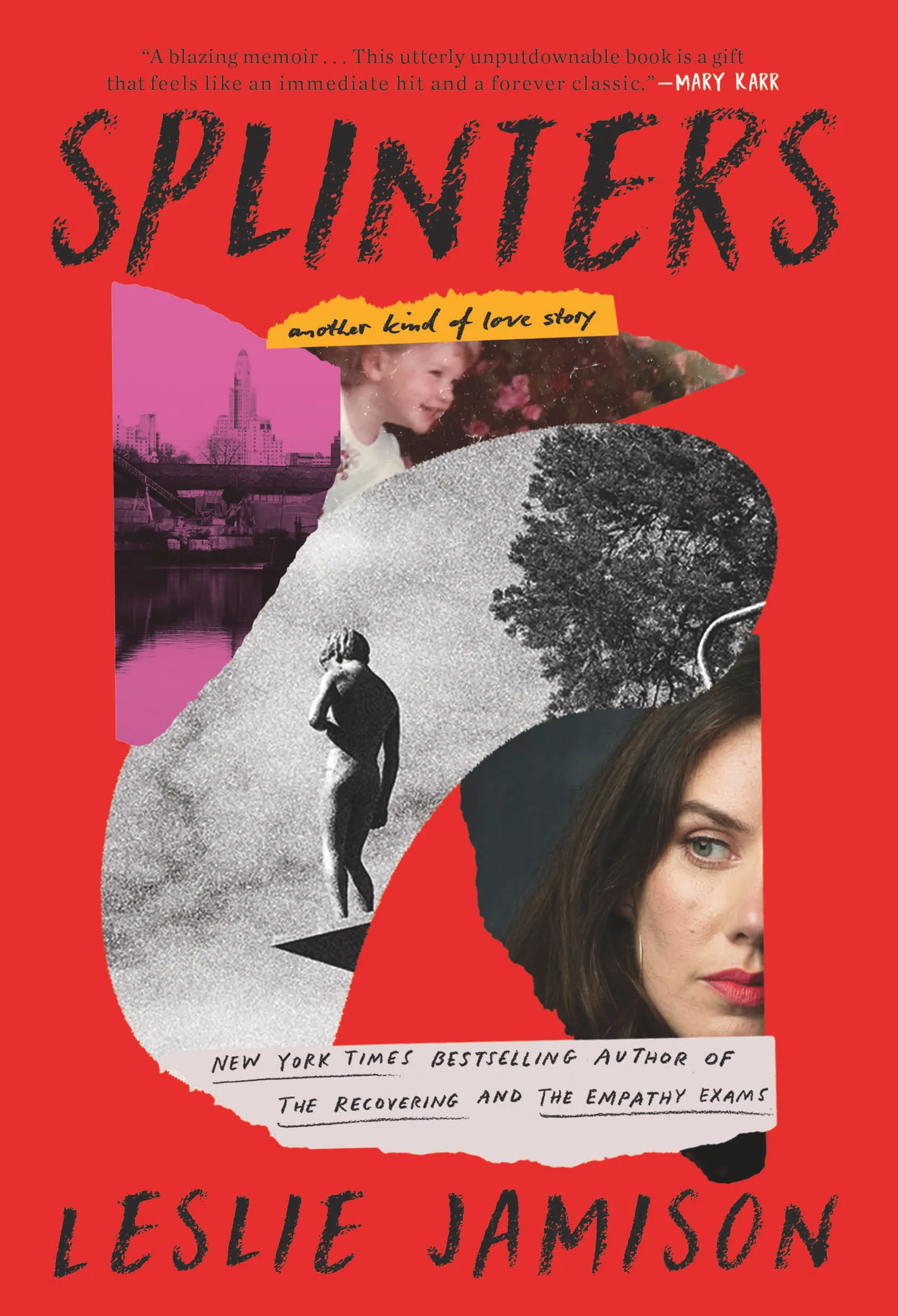Leslie Jamison’s writing style blends journalism and memoir – offering unsparing details about her life. Her first book of essays, The Empathy Exams, reflects on her struggle with an eating disorder and an abortion she had in her 20s. In The Recovering, she weaves her recuperation from alcohol addiction with the broader history of substance use in America.
Now her new book is entirely a memoir — about her decision to end her marriage and the difficulty of balancing a career while raising a daughter. It’s called Splinters: Another Kind of Love Story.
The first chapter begins with the day she moved out of the apartment she shared with her ex-husband and into her own place. Her daughter was 13 months old.
At the time, she recalls having contradictory emotions: “The intoxication of how much I loved her … but feeling that right alongside this grief at the end of the marriage, all of the feelings … regret, second-guessing, uncertainty about the future. … So often, whether you're married, divorced, a parent, not a parent … life just holds so many very different feelings in this radical simultaneity. I wanted to write into that space of ‘all at once-ness.’”
In the chapters, Jamison also highlights the influence of stories people grow up with, and in her family, it was that most marriages end in divorce.
“As a child and an adult, I had a desire for [a] deep, lasting partnership. But I also couldn't quite believe that I could have that, or even maybe that I deserved to have that.”
However, after her parents divorced, they built a deep friendship. Jamison says that gave her a sense that divorce wasn’t a horrible story, but it could lead to a kind of beauty.
Later, her mom got ordained and officiated the wedding between Jamison’s dad and his third wife. She says it was “an emotionally layered experience” for her mother.
However, Jamison’s marriage did not end mutually — she left. In the memoir, she doesn’t offer many details explaining that decision, only that her ex-husband struggled with his anger.
“I was most interested in telling the story of building a life in the aftermath. I was never as interested in a close dissection of why the marriage ended. And part of that had to do with privacy. … But a lot of that also just had to do with where my aesthetic creative interests lay. I was more interested in documenting this space of grief and freedom. … The life that I thought I was going to build — really fell apart. And so what do I do now? What does the new blueprint look like?”

Leslie Jamison is author of “Splinters: Another Kind of Love Story.” Credit: Hachette Book Group.
Jamison’s focus then became motherhood, an experience she calls “both miraculous and common.”
“There can be this conception that the stories most worth telling are the stories that are somehow incredibly unusual or incredibly extraordinary. … I was really interested in actually saying: The experience of … mothering a new baby is at once so common and also so absolutely worth writing about, so absolutely worth finding meaning in.”
She adds, “The book is called Another Kind of Love Story. And it's a few different love stories. But the love story at the core is really a love story with [my daughter], and it feels like I get to keep living that one.”
